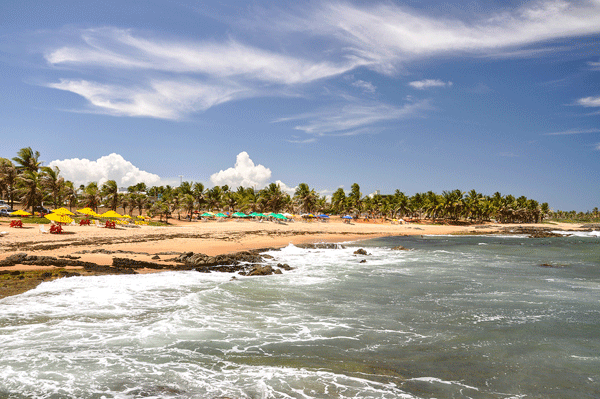How to Enroll in the Public Healthcare System in Brazil
Summary: A primer on how to enroll in the public healthcare system in Brazil.

If you're planning to enroll in the public healthcare system in Brazil, this article covers the requirements for foreigners to be able enroll in the public healthcare system, the steps involved and more.
Brazil's public healthcare system, known as the Sistema Único de Saúde (SUS), is a comprehensive and universal system that provides free healthcare services to all residents, including foreigners. The SUS is funded by taxes and contributions from the federal, state, and municipal governments. It is one of the largest public health systems in the world, covering everything from simple outpatient care to complex heart surgeries.
The quality of healthcare provided by the SUS varies greatly. In some areas, particularly in larger cities, the quality of care can be quite high. However, in other areas, particularly in rural and remote regions, the quality of care can be significantly lower. This is due to a variety of factors, including a lack of resources, a shortage of healthcare professionals, and logistical challenges.
Despite these challenges, the SUS is used by a large majority of the Brazilian population. According to a survey conducted by the Brazilian Institute of Geography and Statistics, approximately 70% of the population relies on the SUS for their healthcare needs.
Eligibility and Enrollment for Foreigners
Foreigners who are legally residing in Brazil are eligible to use the SUS. This includes those who are in the country on a temporary or permanent visa, as well as those who have been granted refugee status.
To enroll in the SUS, foreigners will need to obtain a National Health Card (Cartão Nacional de Saúde). This card is issued by the Department of Informatics of the SUS (DATASUS) and is required to access any SUS services.
Steps for Enrolling in the SUS
- Obtain a Brazilian Taxpayer Registry Number (CPF): This can be done at any branch of the Brazilian Internal Revenue Service (Receita Federal). You will need to provide a valid passport and proof of residence.
- Register with the Federal Police: All foreigners residing in Brazil are required to register with the Federal Police within 30 days of arrival. You will need to provide a valid passport, a visa (if applicable), and two passport-sized photos.
- Apply for a National Health Card: This can be done at any SUS health unit. You will need to provide your CPF, proof of residence, and the registration form from the Federal Police.
Once you have obtained your National Health Card, you can access any SUS services free of charge. However, it's important to note that there can be long wait times for certain services, particularly for specialist consultations and elective surgeries.
Private Healthcare in Brazil
Due to the challenges associated with the SUS, many foreigners and wealthier Brazilians choose to use private healthcare services. Brazil has a large and well-developed private healthcare sector, with a wide range of clinics, hospitals, and specialists.
Private healthcare in Brazil is typically paid for through private health insurance. There are many different health insurance providers in Brazil, offering a variety of plans to suit different needs and budgets. It's important to carefully research and compare different plans before making a decision.
In conclusion, while the SUS provides comprehensive and free healthcare services to all residents, including foreigners, the quality of care can vary greatly. As such, many foreigners choose to use private healthcare services, which typically offer a higher standard of care, but at a cost.
 Oliveira Lawyers
Oliveira LawyersGet Quote
Oliveira Lawyers is the foremost Brazilian law firm dedicated to representing the interests of foreign citizens in Brazil. From immigration to real estate and other life events, our bilingual attorneys got you covered! Main services include immigration, real estate, notary services, tax services, collections, family law, and litigation.
 Oliveira Lawyers
Oliveira LawyersOliveira Lawyers is the foremost Brazilian law firm dedicated to representing the interests of foreign citizens in Brazil. From immigration to real estate and other life events, our bilingual attorneys got you covered! Main services include immigration, real estate, notary services, tax services, collections, family law, and litigation.
Get Quote
About the Author
 Joshua Wood, LPC joined Expat Exchange in 2000 and serves as one of its Co-Presidents. He is also one of the Founders of Digital Nomad Exchange. Prior to Expat Exchange, Joshua worked for NBC Cable (MSNBC and CNBC
Primetime). Joshua has a BA from Syracuse and a Master's in Clinical and Counseling Psychology from Fairleigh Dickinson University. Mr. Wood is also a licensed counselor and psychotherapist.
Joshua Wood, LPC joined Expat Exchange in 2000 and serves as one of its Co-Presidents. He is also one of the Founders of Digital Nomad Exchange. Prior to Expat Exchange, Joshua worked for NBC Cable (MSNBC and CNBC
Primetime). Joshua has a BA from Syracuse and a Master's in Clinical and Counseling Psychology from Fairleigh Dickinson University. Mr. Wood is also a licensed counselor and psychotherapist.
Some of Joshua's articles include Pros and Cons of Living in Portugal, 10 Best Places to Live in Ireland and Pros and Cons of Living in Uruguay. Connect with Joshua on LinkedIn.
Additional Information:
- Brazil Guide
- Healthcare & Health Insurance in Brazil
- Members Talk about Healthcare & Health Insurance in Brazil
- Best Places to Live in Brazil
- Real Estate in Brazil
- Guide to Real Estate in Brazil
- Pros & Cons of Living in Brazil
- Cost of Living in Brazil
- Chikungunya Disease in Brazil
- Zika Virus in Brazil
- How to Rent a Home in Brazil
- How to Enroll in the Public Healthcare System in Brazil
- 2025 Guide to Living in Brazil
- Pros and Cons of Living in Brazil 2025




